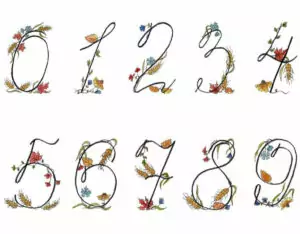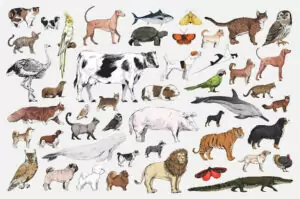German culture is known for its rich heritage and formal etiquette. Expressing gratitude is an integral part of the culture. This article explores the various ways to say thank you in German, understanding the formal and informal expressions, and the regional variations that exist.

✅ AI Essay Writer ✅ AI Detector ✅ Plagchecker ✅ Paraphraser
✅ Summarizer ✅ Citation Generator
Expressing Gratitude in German: An Overview
Understanding how to express gratitude in a language goes beyond just learning words. It involves an appreciation of culture and context. In German, like in many languages, expressing gratitude is an important part of social interaction. It’s not just about good manners, it’s a reflection of respect and appreciation.
Key Expressions
The primary way to say thank you in German is “Danke”. This is a versatile word that can be used in most situations. However, if you want to express deeper gratitude, you can say “Vielen Dank”, which translates to “Thank you very much” or “Many thanks”.
Understanding Formal and Informal Expressions
In formal settings, it’s important to use expressions that convey respect and courtesy. “Vielen Dank” can be considered formal, but you can also use “Danke sehr” or “Herzlichen Dank” to say “Thank you very much” in a more formal way.
Example of Formal Use:
- Thank you for your help with the documents. (Vielen Dank für Ihre Hilfe mit den Unterlagen).
In informal settings among friends or family, a simple “Danke” is usually sufficient. You can also use “Danke schön” which means “Thank you kindly”.
Example of Informal Use:
- Thanks for coming! (Danke für’s Kommen!)
Diving into the Regional Variations
Germany is a country with rich regional diversity. This includes variations in the way people express gratitude. For example, in some parts of Southern Germany and Austria, you might hear “Vergelt’s Gott”, which is a very traditional way to say thank you, especially among older generations.
Incorporating Gratitude into Daily Conversations
Here are some common scenarios where saying thank you in German is appropriate:
- After a Meal: Saying thank you after a meal is common courtesy. You can say “Danke für das Essen” (Thank you for the meal).
- When Receiving a Gift: You might want to express gratitude by saying “Vielen Dank für das Geschenk” (Thank you very much for the gift).
- After a Service is Rendered: If someone provides a service, it’s polite to say thank you. Use “Danke für Ihre Hilfe” (Thank you for your help).
Cultural Subtleties in Expressing Gratitude
Being overly effusive in your thanks can sometimes be seen as insincere in German culture. It’s important to match the level of thanks to the situation. For example, for a small favor, a simple “Danke” is appropriate. For something that required more effort, “Vielen Dank” or “Danke sehr” can be used.
Conclusion
Saying thank you in German is more than just learning a phrase; it’s understanding the cultural subtleties that come with it, just like learning the Du Hast translation by Rammstein. Whether you’re thanking someone for passing the salt, or expressing gratitude for assistance in a business setting, knowing how to say thank you in both formal and informal ways is essential. It’s not only polite but can also open doors to deeper connections with people. In German culture, as in many others, a little gratitude goes a long way.
FAQ
What are some common variations of expressing gratitude in German?
In German, the basic way to express gratitude is by saying “Danke”. For a more heartfelt thank you, “Vielen Dank” or “Danke sehr” can be used. In informal settings among friends or family, “Danke schön” meaning “Thank you kindly” is common. In parts of Southern Germany and Austria, a traditional expression is “Vergelt’s Gott”.
Are there any cultural considerations when saying “Thank you very much” in German?
Yes, in German culture it is important to match the level of thanks to the situation. Overly effusive thanks for something minor might be considered insincere. In formal settings, it’s important to use more formal expressions like “Vielen Dank” or “Danke sehr”, whereas a simple “Danke” is usually sufficient in more informal contexts.
How can I pronounce “Thank you very much” correctly in German?
“Thank you very much” is pronounced as “Vee-len Dank” in German.
Are there any alternative phrases that convey a similar meaning to “Thank you very much” in German?
Alternative phrases that convey a similar meaning include “Danke sehr” (Dahn-ke zehr) and “Herzlichen Dank” (Hairtz-lish-en Dank).
Are there regional variations in how “Thank you very much” is expressed in German?
Yes, there are regional variations. For example, in Southern Germany and Austria, “Vergelt’s Gott” is a traditional way of expressing gratitude. In different regions, there might be slight variations in pronunciation and phrasing.
How important is it to show gratitude in German culture?
Showing gratitude is highly important in German culture. It’s not only considered polite but is also a reflection of respect and appreciation. Whether it’s thanking someone for a meal, a gift, or their help, expressing gratitude is an integral part of social interaction in German-speaking countries.
Follow us on Reddit for more insights and updates.





Comments (0)
Welcome to A*Help comments!
We’re all about debate and discussion at A*Help.
We value the diverse opinions of users, so you may find points of view that you don’t agree with. And that’s cool. However, there are certain things we’re not OK with: attempts to manipulate our data in any way, for example, or the posting of discriminative, offensive, hateful, or disparaging material.